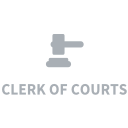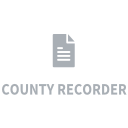Homestead
The Homestead Exemption for residential real estate in Ohio was revised effective July 2nd of 2007. It is hoped that this sheet will answer most questions that taxpayers may have on the subject at this time.
-
Who is eligible for the Homestead Exemption?
Currently, any Ohio resident homeowner who:
Is at least 65 years old or will reach age 65 during the current tax year: or
Is certified totally and permanently disabled as of Jan. 1 of the current tax year, regardless of age; or
Is the surviving spouse of a qualified homeowner and who was at least 59 years old on the date of their spouse's death.
To qualify, an Ohio resident also must own and occupy a home as their principal place of residence as of Jan. 1 filing year. For individual who own more than one home, the principal place of residence is the home where the person is registered to vote. For tax year 2018, homeowners must also submit verification that their household adjusted gross income is $32,200 or less. -
What types of properties are eligible for the Homestead Exemption?
Single family homes, mobile/manufactured homes, condominiums, and certain other specialized ownership types occupied as the PRINCIPAL RESIDENCE of the owner.
-
Who is considered a homeowner?
In general, a person whose name appears on the deed, a purchaser under a land contract, a person with a life estate, or a person with control under a revocable living trust.
-
How much will my taxes reduce by the Homestead Exemption?
The exemption is based upon a reduction of $25,000 in the “true value” appraisal of the home, depending upon the tax rate in your district. That would normally result in a savings of $250 to $400 per year ($125 to $200 per half) in Auglaize County.
-
How do I apply for the Homestead Exemption?
For “Age 65 and Older” applicants and for “Disability” applicants, you need to file a “Homestead Exemption Application” (Form #DTE105A). For “Disability” applicants only, you also need to file a “Certificate of Disability” (Form DTE #105E). Both of these forms can be found here.
-
How do I know if I’m currently receiving the Homestead Exemption?
The reduction is plainly marked on your regular tax statement. If the “Homestead” box is blank, you are not currently on the program.
-
When must my application be filed with the County Auditor?
The application must be received by the County Auditor by the first Monday of June.
-
How do I show proof of my age?
At the discretion of the County Auditor, you may be asked for appropriate I.D. information; providing false information on that application would be considered a perjury and subject to prosecution. Also, you would be barred from the program for three years thereafter and subject to repayment of any wrongfully claimed benefits plus interest on the benefits improperly received.
-
How will I know if my application has been approved?
For approved applications, the exemption amount and tax reduction will be noted on the tax bill you receive in January of the year following the one in which you make application. If your application is rejected for any reason, you will receive written notification from the County Auditor by November 1st of the year in which your application is filed. If you wish to appeal the decision to decline your application you may obtain a form from the County Auditor to do so.
-
When will I see the reductions on my tax bill?
For valid applications filed prior to the June deadline, the reduction will first appear on the tax billing due in February of the following year.
-
Do I have to file a new application every year?
Once you qualify for the exemption, you will receive a form from the County Auditor every year. You will only need to file that form if there is a change in the owner’s eligibility status or in ownership of the property.
-
What do I need to do if I am filing as a disabled person less than 65 years of age?
You will need to get the certification of a medical doctor or psychologist. Requirements for designation (and the certification statement) can be found on the back side of the Homestead Exemption Application form.
-
What if I don’t live in Ohio for the whole year?
You must be a legal resident of Ohio as of January 1st in order to file for Homestead Exemption in that year.
-
What if I die and my surviving spouse is less than 65 years of age?
If your surviving spouse is at least 59 years of age on the date of your death, he/she is eligible to continue receiving the homestead exemption. The surviving spouse should report the change of status before the first Monday of June.
-
Will this discount on my tax bill reduce the revenue of my local school district or other local taxing authority?
No. This program is to be funded from securitizing the State’s settlement with tobacco companies. From those funds, the State is rebating the Homestead deductions to the local taxing districts.
-
What special rules apply for veterans?
The Homestead Exemption Act provides a reduction in property taxes on that individual's primary place of residence and up to one acre. The reduction is equal to the taxes that would be charged on up to $50,000 of the market value.
The current change to the law (Feb 2016) now defines the 100% disabled portion of the Homestead Act. Prior to the change you had to be 100% disabled or a combined rating of 100%. Now you can be at a lower disability % but as long as you are paid at the 100% rate you qualify as well. This is also known as Individual Unemployability.
The other change is you must show your DD-214 with a separation of at least "Under Honorable Condition" or above. If you fit the above criteria, then please go to you local County Auditor's office and take advantage of this great cost savings on your property taxes.
SURVIVING SPOUSE:
An eligible surviving spouse must be the surviving spouse of a person who was receiving the homestead exemption for the year in which their death occurred. The spouse must have occupied the homestead at the time of the Veteran's death and must acquire ownership of the homestead or, in the case of a homestead that is a unit in a housing cooperative, continue to occupy the homestead.
What you will need:
1. DD-214
2. V.A. award letter showing the 100% disability or paid at that rate.
3. Form DTE 1051, "The Auditors office has this document."
If you are unsure if you qualify or have any questions, please contact your local County Auditor's office.
-
Who is eligible for the Homestead Exemption?
Currently, any Ohio resident homeowner who:
Is at least 65 years old or will reach age 65 during the current tax year: or
Is certified totally and permanently disabled as of Jan. 1 of the current tax year, regardless of age; or
Is the surviving spouse of a qualified homeowner and who was at least 59 years old on the date of their spouse's death.
To qualify, an Ohio resident also must own and occupy a home as their principal place of residence as of Jan. 1 filing year. For individual who own more than one home, the principal place of residence is the home where the person is registered to vote. For tax year 2018, homeowners must also submit verification that their household adjusted gross income is $32,200 or less. -
What types of properties are eligible for the Homestead Exemption?
Single family homes, mobile/manufactured homes, condominiums, and certain other specialized ownership types occupied as the PRINCIPAL RESIDENCE of the owner.
-
Who is considered a homeowner?
In general, a person whose name appears on the deed, a purchaser under a land contract, a person with a life estate, or a person with control under a revocable living trust.
-
How much will my taxes reduce by the Homestead Exemption?
The exemption is based upon a reduction of $25,000 in the “true value” appraisal of the home, depending upon the tax rate in your district. That would normally result in a savings of $250 to $400 per year ($125 to $200 per half) in Auglaize County.
-
How do I apply for the Homestead Exemption?
For “Age 65 and Older” applicants and for “Disability” applicants, you need to file a “Homestead Exemption Application” (Form #DTE105A). For “Disability” applicants only, you also need to file a “Certificate of Disability” (Form DTE #105E). Both of these forms can be found here.
-
How do I know if I’m currently receiving the Homestead Exemption?
The reduction is plainly marked on your regular tax statement. If the “Homestead” box is blank, you are not currently on the program.
-
When must my application be filed with the County Auditor?
The application must be received by the County Auditor by the first Monday of June.
-
How do I show proof of my age?
At the discretion of the County Auditor, you may be asked for appropriate I.D. information; providing false information on that application would be considered a perjury and subject to prosecution. Also, you would be barred from the program for three years thereafter and subject to repayment of any wrongfully claimed benefits plus interest on the benefits improperly received.
-
How will I know if my application has been approved?
For approved applications, the exemption amount and tax reduction will be noted on the tax bill you receive in January of the year following the one in which you make application. If your application is rejected for any reason, you will receive written notification from the County Auditor by November 1st of the year in which your application is filed. If you wish to appeal the decision to decline your application you may obtain a form from the County Auditor to do so.
-
When will I see the reductions on my tax bill?
For valid applications filed prior to the June deadline, the reduction will first appear on the tax billing due in February of the following year.
-
Do I have to file a new application every year?
Once you qualify for the exemption, you will receive a form from the County Auditor every year. You will only need to file that form if there is a change in the owner’s eligibility status or in ownership of the property.
-
What do I need to do if I am filing as a disabled person less than 65 years of age?
You will need to get the certification of a medical doctor or psychologist. Requirements for designation (and the certification statement) can be found on the back side of the Homestead Exemption Application form.
-
What if I don’t live in Ohio for the whole year?
You must be a legal resident of Ohio as of January 1st in order to file for Homestead Exemption in that year.
-
What if I die and my surviving spouse is less than 65 years of age?
If your surviving spouse is at least 59 years of age on the date of your death, he/she is eligible to continue receiving the homestead exemption. The surviving spouse should report the change of status before the first Monday of June.
-
Will this discount on my tax bill reduce the revenue of my local school district or other local taxing authority?
No. This program is to be funded from securitizing the State’s settlement with tobacco companies. From those funds, the State is rebating the Homestead deductions to the local taxing districts.
-
What special rules apply for veterans?
The Homestead Exemption Act provides a reduction in property taxes on that individual's primary place of residence and up to one acre. The reduction is equal to the taxes that would be charged on up to $50,000 of the market value.
The current change to the law (Feb 2016) now defines the 100% disabled portion of the Homestead Act. Prior to the change you had to be 100% disabled or a combined rating of 100%. Now you can be at a lower disability % but as long as you are paid at the 100% rate you qualify as well. This is also known as Individual Unemployability.
The other change is you must show your DD-214 with a separation of at least "Under Honorable Condition" or above. If you fit the above criteria, then please go to you local County Auditor's office and take advantage of this great cost savings on your property taxes.
SURVIVING SPOUSE:
An eligible surviving spouse must be the surviving spouse of a person who was receiving the homestead exemption for the year in which their death occurred. The spouse must have occupied the homestead at the time of the Veteran's death and must acquire ownership of the homestead or, in the case of a homestead that is a unit in a housing cooperative, continue to occupy the homestead.
What you will need:
1. DD-214
2. V.A. award letter showing the 100% disability or paid at that rate.
3. Form DTE 1051, "The Auditors office has this document."
If you are unsure if you qualify or have any questions, please contact your local County Auditor's office.
Homestead
The Homestead Exemption for residential real estate in Ohio was revised effective July 2nd of 2007. It is hoped that this sheet will answer most questions that taxpayers may have on the subject at this time.
-
Who is eligible for the Homestead Exemption?
Currently, any Ohio resident homeowner who:
Is at least 65 years old or will reach age 65 during the current tax year: or
Is certified totally and permanently disabled as of Jan. 1 of the current tax year, regardless of age; or
Is the surviving spouse of a qualified homeowner and who was at least 59 years old on the date of their spouse's death.
To qualify, an Ohio resident also must own and occupy a home as their principal place of residence as of Jan. 1 filing year. For individual who own more than one home, the principal place of residence is the home where the person is registered to vote. For tax year 2018, homeowners must also submit verification that their household adjusted gross income is $32,200 or less. -
What types of properties are eligible for the Homestead Exemption?
Single family homes, mobile/manufactured homes, condominiums, and certain other specialized ownership types occupied as the PRINCIPAL RESIDENCE of the owner.
-
Who is considered a homeowner?
In general, a person whose name appears on the deed, a purchaser under a land contract, a person with a life estate, or a person with control under a revocable living trust.
-
How much will my taxes reduce by the Homestead Exemption?
The exemption is based upon a reduction of $25,000 in the “true value” appraisal of the home, depending upon the tax rate in your district. That would normally result in a savings of $250 to $400 per year ($125 to $200 per half) in Auglaize County.
-
How do I apply for the Homestead Exemption?
For “Age 65 and Older” applicants and for “Disability” applicants, you need to file a “Homestead Exemption Application” (Form #DTE105A). For “Disability” applicants only, you also need to file a “Certificate of Disability” (Form DTE #105E). Both of these forms can be found here.
-
How do I know if I’m currently receiving the Homestead Exemption?
The reduction is plainly marked on your regular tax statement. If the “Homestead” box is blank, you are not currently on the program.
-
When must my application be filed with the County Auditor?
The application must be received by the County Auditor by the first Monday of June.
-
How do I show proof of my age?
At the discretion of the County Auditor, you may be asked for appropriate I.D. information; providing false information on that application would be considered a perjury and subject to prosecution. Also, you would be barred from the program for three years thereafter and subject to repayment of any wrongfully claimed benefits plus interest on the benefits improperly received.
-
How will I know if my application has been approved?
For approved applications, the exemption amount and tax reduction will be noted on the tax bill you receive in January of the year following the one in which you make application. If your application is rejected for any reason, you will receive written notification from the County Auditor by November 1st of the year in which your application is filed. If you wish to appeal the decision to decline your application you may obtain a form from the County Auditor to do so.
-
When will I see the reductions on my tax bill?
For valid applications filed prior to the June deadline, the reduction will first appear on the tax billing due in February of the following year.
-
Do I have to file a new application every year?
Once you qualify for the exemption, you will receive a form from the County Auditor every year. You will only need to file that form if there is a change in the owner’s eligibility status or in ownership of the property.
-
What do I need to do if I am filing as a disabled person less than 65 years of age?
You will need to get the certification of a medical doctor or psychologist. Requirements for designation (and the certification statement) can be found on the back side of the Homestead Exemption Application form.
-
What if I don’t live in Ohio for the whole year?
You must be a legal resident of Ohio as of January 1st in order to file for Homestead Exemption in that year.
-
What if I die and my surviving spouse is less than 65 years of age?
If your surviving spouse is at least 59 years of age on the date of your death, he/she is eligible to continue receiving the homestead exemption. The surviving spouse should report the change of status before the first Monday of June.
-
Will this discount on my tax bill reduce the revenue of my local school district or other local taxing authority?
No. This program is to be funded from securitizing the State’s settlement with tobacco companies. From those funds, the State is rebating the Homestead deductions to the local taxing districts.
-
What special rules apply for veterans?
The Homestead Exemption Act provides a reduction in property taxes on that individual's primary place of residence and up to one acre. The reduction is equal to the taxes that would be charged on up to $50,000 of the market value.
The current change to the law (Feb 2016) now defines the 100% disabled portion of the Homestead Act. Prior to the change you had to be 100% disabled or a combined rating of 100%. Now you can be at a lower disability % but as long as you are paid at the 100% rate you qualify as well. This is also known as Individual Unemployability.
The other change is you must show your DD-214 with a separation of at least "Under Honorable Condition" or above. If you fit the above criteria, then please go to you local County Auditor's office and take advantage of this great cost savings on your property taxes.
SURVIVING SPOUSE:
An eligible surviving spouse must be the surviving spouse of a person who was receiving the homestead exemption for the year in which their death occurred. The spouse must have occupied the homestead at the time of the Veteran's death and must acquire ownership of the homestead or, in the case of a homestead that is a unit in a housing cooperative, continue to occupy the homestead.
What you will need:
1. DD-214
2. V.A. award letter showing the 100% disability or paid at that rate.
3. Form DTE 1051, "The Auditors office has this document."
If you are unsure if you qualify or have any questions, please contact your local County Auditor's office.
-
Who is eligible for the Homestead Exemption?
Currently, any Ohio resident homeowner who:
Is at least 65 years old or will reach age 65 during the current tax year: or
Is certified totally and permanently disabled as of Jan. 1 of the current tax year, regardless of age; or
Is the surviving spouse of a qualified homeowner and who was at least 59 years old on the date of their spouse's death.
To qualify, an Ohio resident also must own and occupy a home as their principal place of residence as of Jan. 1 filing year. For individual who own more than one home, the principal place of residence is the home where the person is registered to vote. For tax year 2018, homeowners must also submit verification that their household adjusted gross income is $32,200 or less. -
What types of properties are eligible for the Homestead Exemption?
Single family homes, mobile/manufactured homes, condominiums, and certain other specialized ownership types occupied as the PRINCIPAL RESIDENCE of the owner.
-
Who is considered a homeowner?
In general, a person whose name appears on the deed, a purchaser under a land contract, a person with a life estate, or a person with control under a revocable living trust.
-
How much will my taxes reduce by the Homestead Exemption?
The exemption is based upon a reduction of $25,000 in the “true value” appraisal of the home, depending upon the tax rate in your district. That would normally result in a savings of $250 to $400 per year ($125 to $200 per half) in Auglaize County.
-
How do I apply for the Homestead Exemption?
For “Age 65 and Older” applicants and for “Disability” applicants, you need to file a “Homestead Exemption Application” (Form #DTE105A). For “Disability” applicants only, you also need to file a “Certificate of Disability” (Form DTE #105E). Both of these forms can be found here.
-
How do I know if I’m currently receiving the Homestead Exemption?
The reduction is plainly marked on your regular tax statement. If the “Homestead” box is blank, you are not currently on the program.
-
When must my application be filed with the County Auditor?
The application must be received by the County Auditor by the first Monday of June.
-
How do I show proof of my age?
At the discretion of the County Auditor, you may be asked for appropriate I.D. information; providing false information on that application would be considered a perjury and subject to prosecution. Also, you would be barred from the program for three years thereafter and subject to repayment of any wrongfully claimed benefits plus interest on the benefits improperly received.
-
How will I know if my application has been approved?
For approved applications, the exemption amount and tax reduction will be noted on the tax bill you receive in January of the year following the one in which you make application. If your application is rejected for any reason, you will receive written notification from the County Auditor by November 1st of the year in which your application is filed. If you wish to appeal the decision to decline your application you may obtain a form from the County Auditor to do so.
-
When will I see the reductions on my tax bill?
For valid applications filed prior to the June deadline, the reduction will first appear on the tax billing due in February of the following year.
-
Do I have to file a new application every year?
Once you qualify for the exemption, you will receive a form from the County Auditor every year. You will only need to file that form if there is a change in the owner’s eligibility status or in ownership of the property.
-
What do I need to do if I am filing as a disabled person less than 65 years of age?
You will need to get the certification of a medical doctor or psychologist. Requirements for designation (and the certification statement) can be found on the back side of the Homestead Exemption Application form.
-
What if I don’t live in Ohio for the whole year?
You must be a legal resident of Ohio as of January 1st in order to file for Homestead Exemption in that year.
-
What if I die and my surviving spouse is less than 65 years of age?
If your surviving spouse is at least 59 years of age on the date of your death, he/she is eligible to continue receiving the homestead exemption. The surviving spouse should report the change of status before the first Monday of June.
-
Will this discount on my tax bill reduce the revenue of my local school district or other local taxing authority?
No. This program is to be funded from securitizing the State’s settlement with tobacco companies. From those funds, the State is rebating the Homestead deductions to the local taxing districts.
-
What special rules apply for veterans?
The Homestead Exemption Act provides a reduction in property taxes on that individual's primary place of residence and up to one acre. The reduction is equal to the taxes that would be charged on up to $50,000 of the market value.
The current change to the law (Feb 2016) now defines the 100% disabled portion of the Homestead Act. Prior to the change you had to be 100% disabled or a combined rating of 100%. Now you can be at a lower disability % but as long as you are paid at the 100% rate you qualify as well. This is also known as Individual Unemployability.
The other change is you must show your DD-214 with a separation of at least "Under Honorable Condition" or above. If you fit the above criteria, then please go to you local County Auditor's office and take advantage of this great cost savings on your property taxes.
SURVIVING SPOUSE:
An eligible surviving spouse must be the surviving spouse of a person who was receiving the homestead exemption for the year in which their death occurred. The spouse must have occupied the homestead at the time of the Veteran's death and must acquire ownership of the homestead or, in the case of a homestead that is a unit in a housing cooperative, continue to occupy the homestead.
What you will need:
1. DD-214
2. V.A. award letter showing the 100% disability or paid at that rate.
3. Form DTE 1051, "The Auditors office has this document."
If you are unsure if you qualify or have any questions, please contact your local County Auditor's office.








